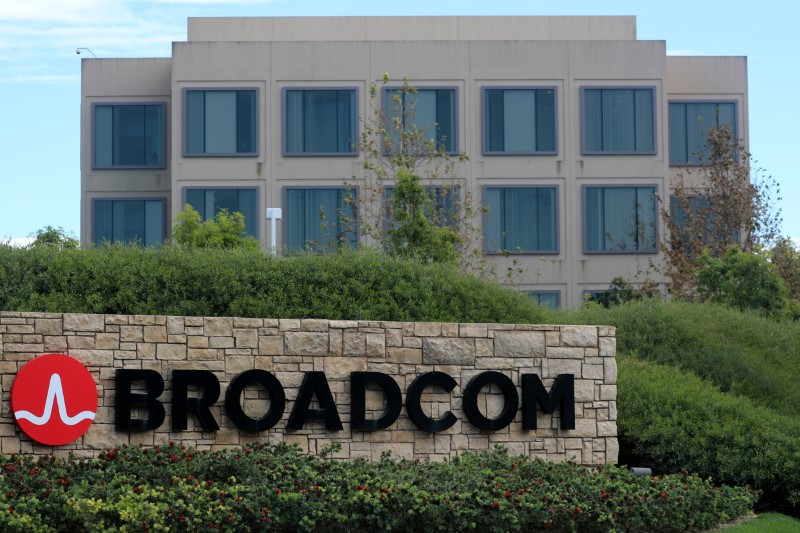Broadcom Slips As Regulator Decides To Press Monopoly Charges By Investing.com

By Dhirendra Tripathi
Investing.com – Broadcom stock (NASDAQ:AVGO) fell 1.5% during Friday’s session as the antitrust regulator decided to press charges alleging the company had monopolized the market for semiconductor components.
It ordered “the semiconductor supplier to cease its anticompetitive conduct.”
Under a consent order that would settle the Commission’s charges, the regulator asked the company to “stop requiring its customers to source components from Broadcom on an exclusive or near exclusive basis”.
As per FTC’s complaint, Broadcom is a monopolist in the sale of three types of semiconductor components, or chips, used in devices that deliver TV and broadband services. These chips are the core circuitry that run traditional TV broadcast set top boxes, as well as DSL and fiber broadband devices.
Broadcom is also one of the few significant suppliers of five related types of chips. These chips include the core circuitry for streaming set top boxes and cable broadband devices, along with Wi-Fi chips and “front-end” chips for both set top boxes and broadband devices. Front-end chips convert incoming analog signals to digital signals.
Broadcom’s direct customers are original equipment manufacturers which use its components to build STBs and broadband devices.
OEMs supply these devices to TV and broadband service providers—such as AT&T (NYSE:T), Charter, Comcast (NASDAQ:CMCSA), DISH and Verizon—which in turn provide devices to consumers in connection with their subscription TV or internet services.
Because Broadcom supplies the core components for devices used by service providers, both OEMs and downstream service providers play important roles in the selection of components used in STBs and broadband devices, the complainant argued.
The complaint alleges that Broadcom illegally maintained its power in the three monopolized markets by entering long-term agreements with both OEMs and service providers that prevented these customers from purchasing chips from Broadcom’s competitors.

